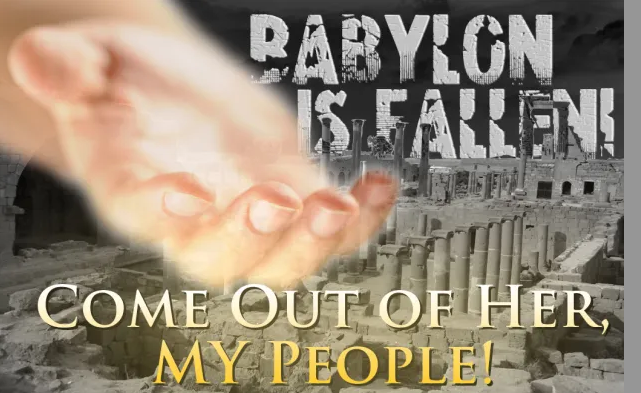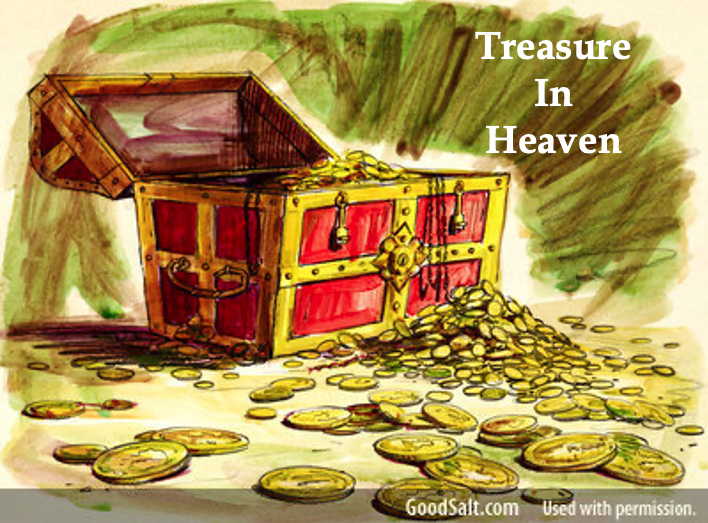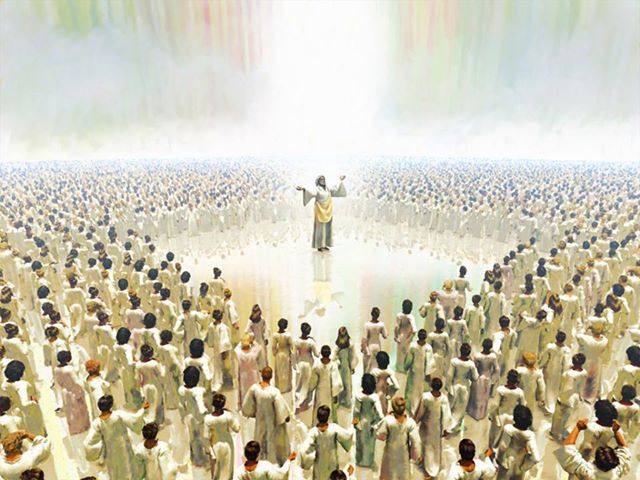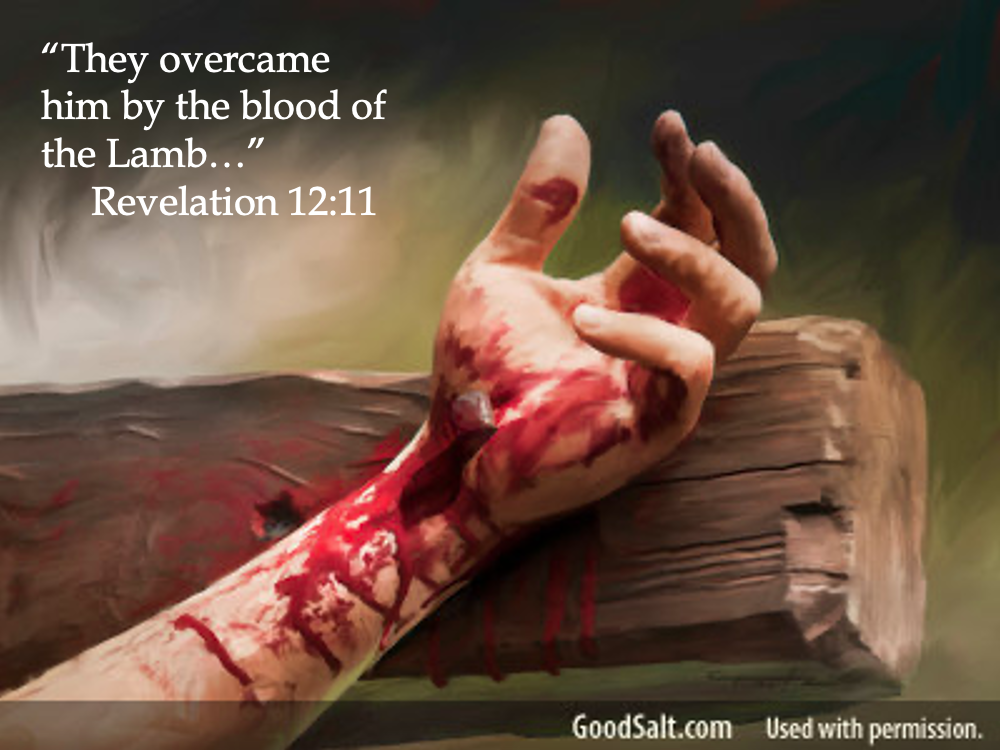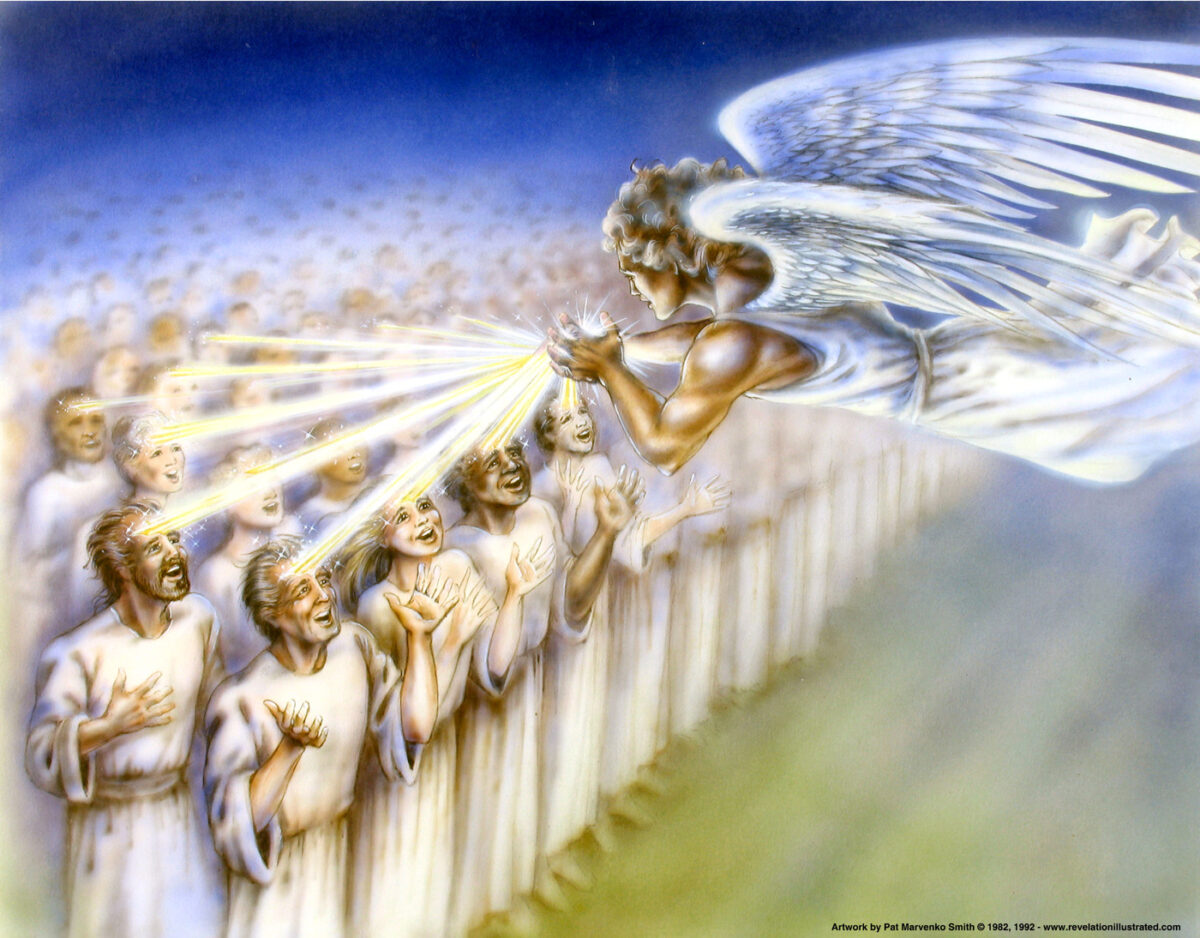“And he cried mightily with a loud voice, saying, ‘Babylon the great is fallen, is fallen, and has become a dwelling place of demons, a prison for every foul spirit, and a cage for every unclean and hated bird!’” Revelation 18:2
In Revelation 17 we discovered that the woman riding on the scarlet beast represents the worldwide false religion that will exist during the first half of the Tribulation period whose headquarters is in the city of Rome, the city on seven hills or “mountains” (17:1-9). The fact that this woman is “sitting” on the beast suggests that Rome will initially control the beast and benefit from his expanding kingdom represented by the “seven heads and ten horns” during the Tribulation period (17:3). At the mid-point of the Tribulation when the beast rises to power claiming to be God (Matthew 24:15; 2 Thessalonians 2:3-4) and demands to be worshiped as such (13:1-18), Rome will refuse to comply and will be destroyed by the leaders of the world under the authority of the beast (17:10-17).
At the end of Revelation 17, we are told that “Babylon,” the code name for Rome (cf. 14:8; 16:19-21; 17:1, 9, 18; cf. I Peter 5:13), is the “great city, which reigns over the kings of the earth” (17:18). In the first century context when John wrote the book of Revelation, this could only refer to the city of Rome which ruled the world at that time. 1 Just as Rome relentlessly persecuted believers in Jesus when John wrote in the first century, the revived Roman Empire in the Tribulation period will also persecute believers who refuse to submit to her evil and idolatrous practices (17:6).
Regarding this end-times capital city, Swindoll writes, “That future Mecca of me-theism and Vegas vanity will be the mother of evil and all forms of false religion. Like Paris, she represents a lifestyle of high culture. Like Jerusalem, she’s a crossroads of world religion. Like Washington, she’s teeming with political power. In fact, if you were to take the powerful cities of the world and merge them into one grand megalopolis, you’d have ‘Babylon.’” 2
The belief that salvation is by works originated with the original Babylon in Genesis 11:4 when the people of the world led by Nimrod, Noah’s grandson (Genesis 9:8-12), said, “Come, let us build ourselves a city, and a tower whose top is in the heavens; let us make a name for ourselves, lest we be scattered abroad over the face of the whole earth.” To avoid spreading over the face of the whole earth as God originally commanded (Genesis 1:28; 9:1), the people wanted to make a name for themselves by building a city and a tower that reached to the heavens. The desire to glorify self (“let us make a name for ourselves”), rather than God, is the foundation of religious /economic “Babylon” or Rome during the Tribulation period. 3
The apostle John now receives a new vision providing more details about why Babylon (Rome) will be destroyed during the Tribulation. “After these things I saw another angel coming down from heaven, having great authority, and the earth was illuminated with his glory.” (Revelation 18:1). This “angel” of the same kind (“another”) as the previous angel in 17:1 possessed “great authority” and “glory” indicative of the importance of the announcement of judgment he was about to make. 4 This is the only “angel” in the book of Revelation which is said to exude “glory,” 5 which suggests he just came from God’s presence (cf. Exodus 34:29-35; Ezekiel 43:2). 6
The presence of this angel once again emphasizes the importance of angels in the book of Revelation. They are present and active in the church age as well (Revelation 1-3), and some believers in Jesus “have unwittingly entertained angels” who are disguised as humans (Hebrews 13:2). But after the church is removed from the earth (Revelation 4:1-4), angels will assume a more visible role to fill the spiritual void in the church’s absence. 7
“And he cried with a loud voice, saying, ‘Babylon the great is fallen, is fallen, and has become a dwelling place of demons, a prison for every foul spirit, and a cage for every unclean and hated bird!’” (Revelation 18:2). The repetition of the word “fallen” (epesen), which means to “be destroyed,” 8 indicates that God guarantees this future judgment and that it will happen swiftly. 9 The tense of this verb describes this future judgment as already having taken place to underscore its certainty. 10
When the beast and ten kings destroy Rome (17:16-17), it will “become a dwelling place of demons, a prison for every foul spirit, and a cage for every unclean and hated bird!” This is a very appropriate description of Rome after its destruction because she was a city given over to idolatry, leading people away from the true God. Throughout history, demons have attached themselves to idols so that when people worship an idol, the demons can receive the adoration and worship they long for (cf. Leviticus 17:7; Deuteronomy 32:16-17; 2 Chronicles 11:15; Psalm 106:36-38; Revelation 9:20). Since Rome’s character was demonic spiritually, God will bring the same character on her physically. 11
Next several reasons are given for Rome’s destruction. “For all the nations have drunk of the wine of the wrath of her fornication, the kings of the earth have committed fornication with her, and the merchants of the earth have become rich through the abundance of her luxury.” (Revelation 18:3).
The first reason for Rome’s judgment is because she corrupted the nations of the world – “For all the nations have drunk of the wine of the wrath of her fornication.” The wealthy and sensual lifestyle of Rome was like a fine wine that other nations drank of and became intoxicated (cf. 17:2; 18:23; 19:2). 12 Her mixture of religion with wealth and sensuality misled nations to commit spiritual “fornication” or immorality by embracing various false gods.
The second reason for Rome’s judgment is due to her seducing foreign leaders to participate in her materialistic practices – “the kings of the earth have committed fornication with her.” Rome is pictured as a “great harlot” (17:1, 5, 15-16) who enticed foreign leaders into her worldly practices by offering them many financial advantages. 13
The third reason for Rome’s judgment is because she enticed merchants to share in her excessive wealth – “the merchants of the earth have become rich through the abundance of her luxury.” The word “merchants” (emporoi) refers to “one who travels by ship for business reasons.” 14 These businessmen are becoming wealthy by selling religious paraphernalia and by engaging in slave trade for the “bodies and souls of men” (18:12-13). 15 Notice that human trafficking will likely become more pervasive during the Tribulation period.
It is important to notice in these verses that wealth does not always come as a blessing from God. Satan can also give wealth, as is demonstrated from his promise to give Jesus worldly kingdoms in exchange for worship. “8 Again, the devil took Him up on an exceedingly high mountain and showed Him all the kingdoms of the world and their glory. 9 And he said to Him, ‘All these things I will give You if You will fall down and worship me.’” (Matthew 4:8-9). Many Christians can make the mistake of assuming that the presence of wealth in a particular church or individual’s life indicates God’s blessing and His approval upon that church or individual.16
It is possible for Satan to bless a church financially when that church compromises the gospel to entice people to be a part of that church. Satan does not want people to hear a clear and simple gospel message (“believe and be saved” – Luke 8:12), so he will deceive people into thinking God’s blessing is on a church that does not preach and teach belief in Christ as the only condition for eternal life.
Jesus warned in Matthew 7:13-14 that the size or prosperity of a church is not always an indication of God’s blessing. He said, “13 Enter by the narrow gate; for wide is the gate and broad is the way that leads [in]to destruction, and there are many who go in by it. 14 How narrow is the gate and confined is the way which leads [in]to life, and there are few who find it.” The “narrow gate” that “leads into life” is faith alone in Christ alone as the only way into God’s heaven (John 3:15-16; 10:9; 14:6; Acts 4:12; I Timothy 2:3-5). Jesus prophesied that “there are few who find it” because there will be fewer and fewer messengers who preach such a message. The “wide… gate” that leads “into destruction” is any message that does not say faith alone in Christ alone is all that is required to enter God’s heaven. Jesus prophesied that “there are many who go in by it.”
This is why there are many prosperous churches in America that are not preaching faith alone in Christ alone as the only condition for entering God’s heaven. Likewise, there are also many fast-growing world religions standing in front of the wide gate proclaiming some other way to God that is not faith alone in Christ alone. How does God want believers in Jesus to respond to such wide-gate false religions? He tells us in the next verse in Revelation 18.
“And I heard another voice from heaven saying, ‘Come out of her, my people, lest you share in her sins, and lest you receive of her plagues.’” (Revelation 18:4). John “heard another voice from heaven” that may belong to the Lord Jesus. This voice calls God’s “people” to “come out” of Rome and her worldly lifestyle “lest” they “share” the same judgment for “her sins, and… receive of her plagues.” Some people living in Rome will hear the gospel preaching of the Two Witnesses during the first half of the Tribulation (11:1-12) or the 144,000 Jewish evangelists during the last half of the Tribulation (7:1-8; 14:1-5) and will believe in Christ for eternal life. To avoid Rome’s impending judgment, they will need to flee from the city.
This reminds us of Lot who warned his sons-in-laws to get out of Sodom before the Lord destroys it, but they refused, and died as a result (Genesis 19:14-25). This will also happen to God’s people who ignore His command to get out of Rome before He destroys it. 17 They will suffer physical death, but they will still enter God’s heaven because of their belief in Jesus for His gift of salvation.
If you are part of a church or religion that does not preach faith alone in Christ alone to enter God’s heaven, you are advised to flee from that church or religion. The apostle Paul warned the Galatian believers in Jesus not to support or join those who do not preach a “believe / faith alone” gospel (cf. Galatians 1:6-9; 4:12, 21-30; 5:1-12; 6:17). It does not matter how wealthy or kind a person or church is that teaches a different gospel. They are “accursed” by God if they preach a different way to heaven other than faith alone in Christ alone (Galatians 1:8-9).
If they are believers in Jesus, they will lose rewards at the Judgment Seat of Christ and could even experience God’s discipline here on earth (Galatians 1:6-9; 5:19-21; 6:7-8; I Corinthians 3:15; 2 Corinthians 5:10; I Timothy 1:18-20; 6:3-5; 2 Timothy 2:23-26). If they are not believers in Jesus, they will experience a greater degree of punishment in the lake of fire for misleading people away from faith alone in Christ alone (Matthew 18:6-14; 23:13-15; 2 Peter 2:4-17; Jude 1:4-13; Revelation 19:20; 20:11-15).
The fourth reason for Rome’s judgment is seen in verse 5. “For her sins have reached to heaven, and God has remembered her iniquities.” (Revelation 18:5). Rome’s “sins have reached to heaven” and triggered God’s remembrance of “her iniquities” of trying to make a name for herself.This is reminiscent of the Tower of Babel when humankind tried to build a city with a tower “whose top is in the heavens” to “make a name” for themselves instead of for God (Genesis 11:4). Those who emphasize human effort and self-reliance to get to heaven like the original Babylon, will eventually deplete God’s patience. Because He is just and righteous, God must give Rome her just recompense.
“Render to her just as she rendered to you, and repay her double according to her works; in the cup which she has mixed, mix double for her.” (Revelation 18:6). God is commanding the beast and ten kings (17:16-17) to give Rome a double portion of judgment for her sins. For centuries Rome has misled people away from the true God and put to death His people (cf. 17:6; 18:24; 19:2). The “cup” she had used to entice others will now become the instrument of her own punishment.
Two more reasons for Rome’s judgment are given in the next verse. “In the measure that she glorified herself and lived luxuriously, in the same measure give her torment and sorrow; for she says in her heart, ‘I sit as queen, and am no widow, and will not see sorrow.’” (Revelation 18:7). Rome’s sinful pride (“she glorified herself”) and self-reliance (“she says in her heart, ‘I sit as queen, and am no widow, and will not see sorrow’”)led her to believe she was invincible and immune to disaster. 19 God hates such shameless pride and self-reliance that leads to the rejection of His ways accompanied by viewing oneself as indestructible 20 and accountable to no one.
The reality is that such pride and self-reliance will be severely judged by God. “Therefore her plagues will come in one day – death and mourning and famine. And she will be utterly burned with fire, for strong is the Lord God who judges her.” (Revelation 18:8). “In one day” God will give Rome “death and mourning and famine.” Vacendak suggests that Rome’s destruction in Revelation 18:8-11 “will be by means of a nuclear warhead… Kings, merchants, and shipmasters will all stand ‘at a distance’ when they see ‘the smoke of her burning.’ The desire to keep a certain distance between themselves and the mushroom cloud of smoke billowing up to heaven may indicate their fear of the nuclear radiation that now envelops the city.” 21
Instead of slowly declining, Rome will collapse suddenly in the Tribulation, much like the World Trade Center towers in New York City on September 11, 2001. 22
Throughout history, people have been deceived into believing their joy, peace, and meaning in life are found through the accumulation of wealth as represented by “Babylon the Great” or Rome whose materialistic and religious system will be swiftly destroyed before the Lord Jesus returns to earth (Revelation 18:1-8).
Rather than invest in the things of the earth which will soon disappear forever, believers in Jesus are to invest in heavenly treasure which lasts forever. In the Sermon on the Mount, Jesus instructs His disciples to “lay up for yourselves treasures in heaven” (Matthew 6:20a) which cannot be lost (“where neither moth nor rust destroys and where thieves do not break in and steal” – 6:20b). We may miss those words “for yourselves.” It is not selfish to seek eternal rewards now because Jesus commands us to do this. In fact, to not lay up treasures for ourselves in heaven is disobedience to Christ.
Why is it important to lay up treasures in heaven for ourselves now? Jesus explains in the next verse. “For where your treasure is, there your heart will be also” (Matthew 6:21). Our hearts follow what we value. The more we invest in Christ’s coming Kingdom now, the more our hearts will be focused on Christ and His coming Kingdom now, and the more glory and honor Jesus will receive in eternity (cf. Revelation 4:9-11; 21:24, 26).
How can we lay up treasures in heaven for ourselves? Jesus explained how earlier in Matthew 6. By doing “charitable deeds” (6:1-4), praying (6:5-6), and fasting (6:16-18) “in secret.” When we do these things for God alone (“in secret”) and not for public applause or recognition like the religious hypocrites did (6:2, 5, 16), Jesus promises that “your Father who sees in secret will reward you openly” (6:4, 6, 18).
Prayer: Father God, we thank You for Your penetrating Word that reveals the deception of our hearts. Many of us have been duped into believing that wealth is always a blessing from God. But Your Word today reminds us that Satan can also give wealth to those who fulfill his purpose of leading people away from the true God and eternal life, Jesus Christ, as demonstrated by the worldwide false religion that will exist during the first half of the Tribulation period whose headquarters is in the city of Rome. Like Rome in the future Tribulation, many churches and religions today possess wealth, but they are not preaching belief in Christ as the only condition for eternal life. Instead, they preach human effort and self-reliance as the way to heaven. Please help those who are blinded by the allurement of these false religions today to discover the truth about Jesus Christ. He alone can give them eternal life as a free gift the moment they believe in Him because He alone paid for it all through His death and resurrection. Use those of us who believe in Jesus to rescue others from the snare of religion before it is too late for them. In the matchless name of the Lord Jesus Christ, we pray. Amen.
ENDNOTES:
1. Bob Vacendak; Robert Wilkin; J. Bond; Gary Derickson; Brad Doskocil; Zane Hodges; Dwight Hunt; Shawn Leach; The Grace New Testament Commentary: Revised Edition (Grace Evangelical Society, Kindle Edition, 2019), pg. 1568.
2. Charles R. Swindoll, Insights on Revelation (Swindoll’s Living Insights New Testament Commentary Book 15, Tyndale House Publishers, Inc., 2014 Kindle Edition), pg. 325.
3. Tom Constable, Notes on Revelation, 2017 Edition, pg. 193.
4. Ibid., pg. 194.
5. Vacendak, pg. 1568.
6. Constable, pg. 194.
7. Tony Evans, CSB Bibles by Holman, The Tony Evans Study Commentary (B & H Publishing Group, Kindle Edition 2019), pg. 2411.
8. Walter Bauer, A Greek-English Lexicon of the New Testament and Other Early Christian Literature: Third Edition (BDAG) revised and edited by Frederick William Danker (Chicago: University of Chicago Press, 2000 Kindle Edition), pg. 815.
9. Constable, pg. 195.
10. The Greek verb translated “fallen” is piptō and it is in the aorist tense (epesen), suggesting a prophetic use which emphasizes the certainty of this future action by stating it as if it has already happened.
11. Vacendak, pg. 1568.
12. Ibid.
13. Ibid., pg. 1569.
14. BDAG, pg. 325.
15. Vacendak, pg. 1569.
16. Evans, pg. 2411.
17. Vacendak, pg. 1569.
18. Constable, pg. 196.
19. Vacendak, pg. 1569.
20. Evans, pg. 2411.
21. Vacendak, pg. 1568.
22. Constable, pg. 197.

